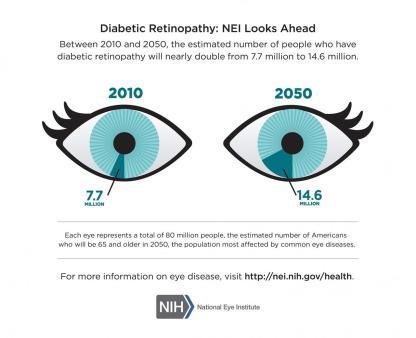Summit Eye Center Blog
Diabetes and Your Eyes

November is American Diabetes Month and Diabetic Eye Disease Month. This is a perfect time to discuss how diabetes can affect the eyes.
Diabetic retinopathy is the leading cause of blindness among working-age Americans. It is the result of damage to the retina, the light-sensitive tissue in the back of the eye. Early detection, proper management of your diabetes and annual dilated eye exams can protect against vision loss.
Nearly 1/3 of diabetics over the age of 40 have some level of diabetic retinopathy according to the Centers for Disease Control and Prevention (CDC). Blindness from diabetic retinopathy costs the United States about $500 million annually. Yet, less than half of adults with diabetes recognize their risk for vision loss.
How Does Diabetes Cause Diabetic Retinopathy?
Diabetes causes abnormal changes in the blood sugar (glucose) that the body ordinarily converts into energy to fuel various bodily functions. With uncontrolled diabetes, high levels of blood sugar accumulate in the blood vessels. This hampers or alters blood flow to the body’s organs, including the eyes. This causes the blood vessels to leak fluid or bleed, which causes the retinal tissue to swell and form deposits in early stages. In later stages, abnormal blood vessels form which tend to break and bleed into the jelly that fills that back 2/3 of the eye, the vitreous. Besides loss of vision due to bleeding, a person can develop a retinal detachment or glaucoma as this process continues.
Symptoms of Diabetic Retinopathy
• Early stages have no symptoms, which makes regular dilated eye exams important
• Fluctuating vision
• “Spots” in one’s vision
• Blurry or distorted vision
Prevention Tips
• Keep blood sugar within normal range
• Monitor blood pressure and keep it under good control
• Maintain a healthy diet
• Exercise regularly
• Don’t smoke
• Follow you doctor’s instructions
• Regular eye examinations
We will cover the different types of diabetic retinopathy and the different treatments in future blogs. If you need a dilated eye exam due to diabetes, call Summit Eye Center at (816) 246-2111 or email
